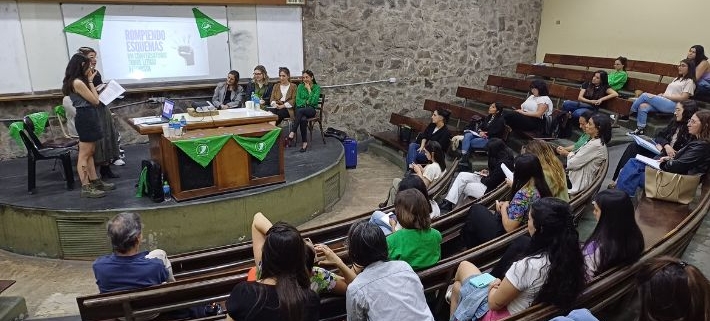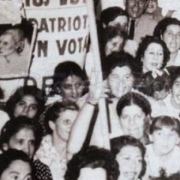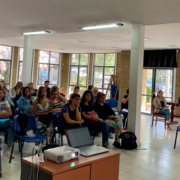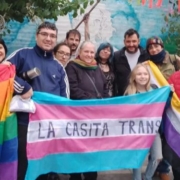Breaking the mold: advocacy from a feminist perspective
From Fundeps, together with IDEJUS and Católicas por el Derecho a Decidir, we present “Breaking schemes: a Conversation on Feminist Litigation” at the Faculty of Law of the National University of Córdoba. We spoke with an international panel of lawyers with outstanding experience in the defense of human rights.
“Below, we offer a google translate version of the original article in Spanish. This translation may not be accurate but serves as a general presentation of the article. For more accurate information, please switch to the Spanish version of the website. In addition, feel free to directly contact in English the person mentioned at the bottom of this article with regards to this topic”.
On Friday, September 15, within the framework of the optional subject “Feminist Litigation: Legal Strategies for Gender Equality” taught this semester at the Faculty of Law, the first discussion on feminist litigation took place. The subject addresses conceptual issues about strategic litigation and feminist criticism of law, with a practical part in which cases and experiences are studied. The teaching team is made up of lawyers from Fundeps, CDD and IDEJUS.
With the participation of Lucía de la Vega (CELS), Soledad Deza (Women x Women), Mariela Galeazzi (Amnesty International), Patricia Sotile (Latin American Justice and Gender Team) and Natalia Acevedo Guerrero (O’Neill Institute for Law and Global and National Health from Georgetown University), we talked about her experience in social organizations and in the development of strategic litigation, the obstacles to the practice of law with a feminist perspective and her response to all types of judicial controversies. They highlighted the importance of collective and interdisciplinary work for comprehensive approaches and the need for training in feminist and human rights perspectives in the legal field.
With a review of those causes in which they participated, the progress of the integration of perspectives for real access to justice and the importance of its promotion and dissemination was analyzed.
Through these instances, in line with what was discussed with the panel and with the institutional support of the Faculty of Law, we are committed to contributing to the training of legal professionals with a gender perspective.
Author
Luz Baretta
Contact
Mayca Balaguer, maycabalaguer@fundeps.org








